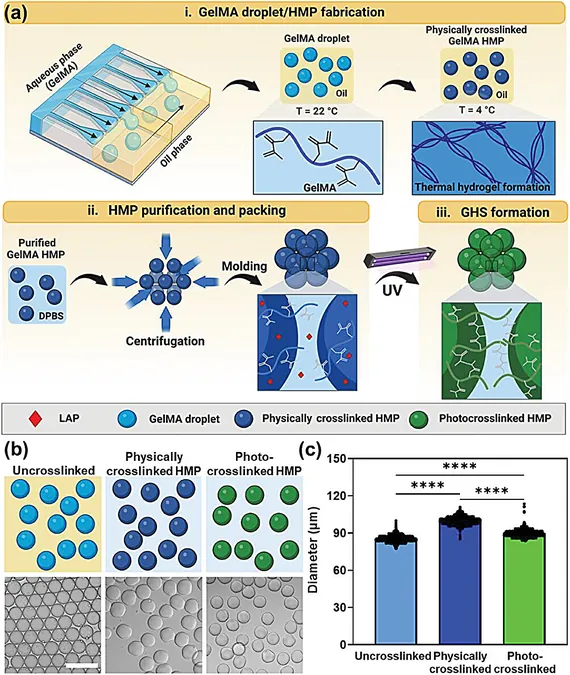
Breakthrough Study Reveals How Pregnant Mothers Can Shield Their Babies from Food Allergies with One Powerful Supplement!
2024-11-14
Author: Wei Ling
Introduction
New groundbreaking research suggests that supplementing pregnant women with 2′-Fucosyllactose (2′-FL), a significant human milk oligosaccharide, could offer a novel approach to preventing food allergies in their children. This discovery aligns with earlier studies that showed a link between 2′-FL in breast milk and a reduced risk of allergies in infants, raising hopes for a proactive strategy in allergy prevention.
Study Background
Conducted by a team led by A. Rousseaux from the prestigious Institut National de Recherche pour l'Agriculture, l'Alimentation et l'Environnement in Nantes, France, the study aims to address the pressing issue of food allergies, which can develop during the early months of life and are often associated with immune dysfunction.
According to the researchers, “Human milk oligosaccharides (HMOs) play a crucial role in modulating immune function, strengthening the gut barrier, and influencing the gut microbiota of infants.” These compounds are not only present in human milk but can also be found in the blood, urine, and amniotic fluid of pregnant women. The study hypothesizes that gestational supplementation of 2′-FL could provide essential microbial and immune support, offering protection against the development of food allergies.
Study Design and Eye-Opening Results
The research utilized a mouse model to test the hypothesis, where pregnant mice were either fed a standard diet or a diet supplemented with 2′-FL from conception through birth. After weaning, the researchers exposed the female pups to wheat products to analyze the onset of allergies. Remarkably, the puppies born to mothers on the 2′-FL diet exhibited no signs of food allergy, in stark contrast to those from the control diet.
Not only did these offspring demonstrate significantly lower allergy scores, but they also maintained stable body temperatures—a crucial metric in assessing overall health. Blood tests revealed that pups from the 2′-FL group had reduced levels of allergy-related biomarkers, including wheat-specific immunoglobulins and mMCP-1, suggesting a stronger immune response thanks to the presence of IgG2a, a protective antibody.
Further evaluations of gut microbiota revealed major differences in α- and β-diversity between the two dietary groups during pregnancy, indicating how maternal diet can shape microbial communities. Interestingly, while these differences evened out during breastfeeding, variations remained evident in the pups’ gut diversity as they aged—showcasing the lasting impacts of maternal nutrition.
What This Means for Future Generations
The findings of this research underscore a critical link between maternal diet and the health of offspring, opening doors to potential strategies for reducing allergy prevalence. By enhancing HMO levels via dietary changes, expectant mothers could significantly impact their baby’s immune system and gut health, providing a buffer against food allergies.
“This study presents unprecedented evidence that gestational supplementation with 2′-FL offers complete protection against food allergies in offspring, linked to microbial imprints and fortified gut barriers,” Rousseaux and his team concluded. They believe these results align with earlier findings suggesting that higher levels of 2′-FL in breast milk correlate with a reduced risk of allergies in infants.
As we look towards the future, this research could transform how healthcare professionals approach allergy prevention, emphasizing the importance of maternal health and nutrition during pregnancy. Stay tuned for more exciting developments in the world of nutritional science and its impact on child health!


 Brasil (PT)
Brasil (PT)
 Canada (EN)
Canada (EN)
 Chile (ES)
Chile (ES)
 España (ES)
España (ES)
 France (FR)
France (FR)
 Hong Kong (EN)
Hong Kong (EN)
 Italia (IT)
Italia (IT)
 日本 (JA)
日本 (JA)
 Magyarország (HU)
Magyarország (HU)
 Norge (NO)
Norge (NO)
 Polska (PL)
Polska (PL)
 Schweiz (DE)
Schweiz (DE)
 Singapore (EN)
Singapore (EN)
 Sverige (SV)
Sverige (SV)
 Suomi (FI)
Suomi (FI)
 Türkiye (TR)
Türkiye (TR)